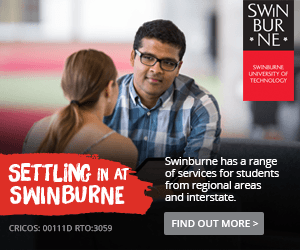Getting Started
Orientation
Orientation Week
Don’t overload your to-do list in your first week at uni. Sign up to the library, sort out your public transport route, purchase your equipment and attend faculty BBQs. Take time to enjoy the process and settle in.
Smile and say hello to people, especially if you recognise they may be having a hard time with the adjustment. You might make their day and even a new friend.
Finding your way around
Universities are big places! You will get a map in O-Week – hang on to it! If you are having difficulty finding your way around the Lost on Campus app has your back. It contains maps and directions for 42 Australian campuses. Your university might even have their own app so be sure to ask the question.
You’ll also need to find your way around your institution’s online space. Universities have internal student websites you can log in to to access your subjects, resources and notices from your tutors and lecturers. This is going to be a really important space for you to keep up to date with your study and course requirements, so make sure you can access any internal sites.
Timetables and choosing your classes
Your degree will offer a range of course and tutorial options, some of which may be compulsory.
Find out your subjects early and sign up for your preferences of lectures and tutorials so you’re not stuck with the dreaded 8am Friday tutorial!
A lot of universities now hold online sign up sessions, which can be limited to specific dates and times, so make sure you find out and put a reminder (or two) in your calendar!
The faculty staff at your university will be able to advise you which electives to choose to meet the requirements of your course. Make sure you have a chat with a course coordinator before signing up.
Deadlines
Deadlines are part of university life. They include assignment due dates as well as census or withdrawal dates.
Census dates are important as they dictate when you can withdraw from a subject without incurring fees. Mark census dates in your calendar and set an alert on your phone to make sure your academic record doesn’t end up with a ‘Withdrawal Fail’.
If you have any questions or doubts about aspects of your study, including timetabling, deadlines and census dates, or you’re concerned about picking the wrong classes, make sure faculty staff are your first point of call. I am text block. Click edit button to change this text. Lorem ipsum dolor sit amet, consectetur adipiscing elit. Ut elit tellus, luctus nec ullamcorper mattis, pulvinar dapibus leo.
Clubs, societies and support on campus
Starting uni can be overwhelming but remember there are hundreds of other students experiencing first year nerves too.
All unis offer a variety of sporting, academic and cultural social groups. Joining clubs and societies is a great way to meet people who share similar interests to you and will make the adjustment to uni easier. Join up during O-Week or visit your university’s website for more information on the clubs and societies on offer.
A great initiative offered by most unis is student mentoring. The university will match first year students with an older student who can answer any questions and provide ongoing support. It’s a great way to find out how university life is structured and it always helps to be able to ask questions of someone who has been a first year before.
Student unions
Student unions are run by students, for students and provide a range of services to members including representation, student development, support services, facilities and more. Your university student union reps will be introduced in O-Week. Their contact information will also be on message boards around campus.
Local information
When you start university you might be moving to a new area. Be sure to visit your local visitor centre or council to pick up maps and find out information about the area. Ask for advice about where to shop for food and clothing and for information on other groups you can join outside the university.
Making the most of O-Week
Universities run O-Week from mid to late February. Once you are enrolled in your course you will receive information on when your institution is planning to hold their orientation sessions. This really is one of the best ways to get to know your uni and find out what’s on offer for you.
At most unis you will be able to sign up online or at information booths for sessions. There will be some essential sessions you must attend for your course. Make sure you find out what is compulsory in O-Week and book those sessions in first and then fill the rest of your week with fun activities.
Check out some of the O-Week activities at the following unis to get a better idea of what happens:
Oh what a week
Ask any student who has ever been to O-Week and they will tell you it’s one of the best weeks of their life. Keep O-Week fun and safe by following these tips:
Take time out to eat and remember to drink lots of water!
You still need to sleep (a bit)! You don’t want to get to your first week of lectures and be so tired you can’t concentrate.
Plan your transport. Make sure you don’t end up stranded at the end of the night by planning to taxi-pool or checking the public transport timetable ahead of time.
Safety in numbers. You are in a new environment so it’s important to make some friends you can trust and formulate a plan to never leave a place until you are all accounted for.
Don’t ruin the fun by getting out of control. Try to avoid mixing your drinks and be responsible with your alcohol consumption.
Planning
You have a big and exciting year ahead of you! Breaking the year into chunks can make it more manageable and less overwhelming. Mark important dates such as assignment due dates and exam periods in a diary or on a calendar. This will allow you to see your year more clearly and plan trips home.
Weekly planners can help your week run smoothly and will assist with your time management. Decide if you prefer to keep on track through a paper or digital diary (or maybe both) and write everything down so you don’t miss deadlines. A weekly timetable can help you see how many hours you have available after classes and any job commitments to allocate to study and leisure.
What you need to take to uni
Making a plan before you pack will ensure you don’t forget anything and allow you time to accumulate the essentials. Don’t go overboard! You’ll be surprised what you can live without.
Remember whatever you take you’ll have to pack up and bring home during breaks or take with you when you move on to other accommodation, so there’s no need to try and recreate your family home in your dorm room. Check your university’s website for detailed information on what you need to bring with you.
Make a list:
- Administration
Proof of age card, driver licence, passport, bank information, car regis - Technology
Laptop, tablet, phone, printer, chargers and power cords, headphones, USB, hard drive. - Stationery
Notebooks, pens, folders, course specific items. - Communication and Internet
Make sure you find out what internet is available on campus and how to use the local library internet. If you need a mobile broadband plan compare deals at com.auor iselect.com.au. - Food and Kitchen
If you need to provide your own items: kettle, toaster, basic crockery, cutlery, saucepan, frypan, baking tray, tongs, egg flip, chopping board, knife, grater, strainer, can-opener, microwave safe containers/crockery, storage containers, cling film, ziplock bags, (see also the section on Accommodation) - Bedroom
Sheets, pillows, doona, mattress protector, spare blankets, ear plugs, clothes hangers. - Bathroom
Toiletries, first aid, towels, medication, thongs for shared bathrooms and of course your toothbrush and toothpaste! - Personal
Your clothes and shoes and some personal decorations such as posters and photos to make you feel at home.
Life Tips
Everyone has ups and downs in life – it’s how you handle what life throws at you that will shape the person you become.
Attitude is EVERYTHING
- Your attitude is one thing you have complete control over.
- Hold onto your sense of humour, you will need it.
- Every journey starts with one step.
- It may be exciting and overwhelming in equal measure.
- Accept that whatever it will be, it will not be like home.
- Do some planning but be flexible too; try to embrace change and you will learn so much more.
- Ask questions and be interested. It’s a positive habit and you never know what you’ll discover!
Think positive thoughts
- Be kind to yourself and treat yourself how you would like others to treat you.
- Take time to learn about yourself and how you react. Develop strategies to help you cope with different situations and people.
- Get help if you need it. Ask a friend, go and see a campus counsellor or talk to your doctor.
- Discover what you really enjoy doing and spend time developing hobbies and passions.
- Be true to yourself and everything will be a lot easier.
Be honest
- If you are unsure or don’t know something, ask; there is no such thing as stupid question.
- Nobody expects you to know everything, because nobody does!
- If you don’t feel comfortable doing something, then DON’T.
Make a good first impression
- Smile and say hi! It’s the best way to start a conversation.
- Listen to people and you will get to know them quicker
- Respect others and they will respect you in return.
- Develop good time management skills by being on time and prepared for what is expected of you.
- Get involved in campus life as much as possible – it’s a great way to make friends and it’s lots of fun.
- While you might only get one chance to make a first impression you can always say sorry and start again if you get off on the wrong foot with someone.
Student Discounts, Tips & Travel
Remember to always carry your student card on you for discounts on movies, public transport and more! The following are great sources for cheap deals:
Cheap Deals
UNiDAYS
Visit www.myunidays.com to sign up for discounts to stores around the world.
Student VIP
This is an Australian university student website, providing students with access to a secondhand textbook market, tutors, subject ratings, reviews, discounts and more. Log on to www.studentvip.com.au.
Student Edge
This site provides students with discounts on big brands such as Microsoft, Booktopia, Optus, Apple and Dell. Get information on student support services such as health, wellbeing, study and career tools, jobs, internships, events and competitions atwww.studentedge.com.au.
Student Flights
Discount travel (not just flights) for students and anyone under the age of 26. Visitwww.studentflights.com.au.
NRMA – Free2go
NRMA offers a roadside assistance package specifically for 16-20 year olds, providing personal roadside assistance 24/7, no matter what vehicle you’re in or whether you are a driver or a passenger. Membership is free for your first year! Other benefits include special offers, competitions, motoring advice and driving tips. Find out more atwww.free2go.mynrma.com.au.
Uni bulletin boards
Don’t forget to keep an eye on campus bulletin boards for used textbooks, specials at local cafes and bars and other community updates. Find out about online forums people at uni use too, so you don’t miss out on any student discounts.
Top 10 free apps for students
-
UNiDAYS
Love a discount? Who doesn’t? This app will connect you with discounts and offers across clothing, technology, music, stationery and entertainment brands.
-
SimpleMind+
This app helps you organise information and topics in a mind map. If you’re a visual learner, this is the app for you!
-
Evernote
Studying can quickly become chaotic so an app that helps you stay organised is essential. Create checklists, to-do lists and searchable notes, as well as store web clippings, photos, audio and more.
-
Lost on campus
If you struggle with directions this app is a must! The app currently includes 55 Australian uni and TAFE campus maps, showing you the way to tutorial rooms, lecture theatres, cafes, carparks and toilets.
-
RefME
If you find referncing tough to wrap your head around, give this app a go. It allows you to automatically cite your references within your assignments. There are over 7,500 citation styles, including Harvard, MLA and APA. Users can scan book and jounal barcodes, or enter details and the app will do the rest!
-
The happiest hour
Looking for an affordable night out? This is your go-to app to help you find the best local food and drink specials. Search by location, time, special type and more.
-
Pocketbook
Always running out of cash before your next pay? This app helps you budget by tracking all your expenses in the one spot. It sends helpful alerts when bills are due and provides a weekly summary to keep you on track.
-
GoConqr
Make exams a breeze by using this revision tool to create flashcards, quizzes, slides, notes and mind maps. You can also browse other users’ notes, creating a collaborative learning experience.
-
Class timetable
Be on time and ready for class with this app that lets you create a detailed timetable and schedule tasks. Sounds simple but once you’ve turned up to the wrong class a few times you’ll be downloading this helpful tool.
-
Circle of 6
This personal safety app lets you add friends to find them easily if they get lost on a night out. There’s also the option to send an instant call for help to your listed friends.
Travel by State/Territory
Tertiary students can apply for a concession card entitling them to discounted fares on public transport. Visit your local government transport website in your state or territory to find out how to apply for a travel concession card.
NSW: www.transportnsw.info
NT: www.nt.gov.au
QLD: www.translink.com.au
TAS: www.metrotas.com.au

TFF alt layout test

Tim Fischer Fellowship
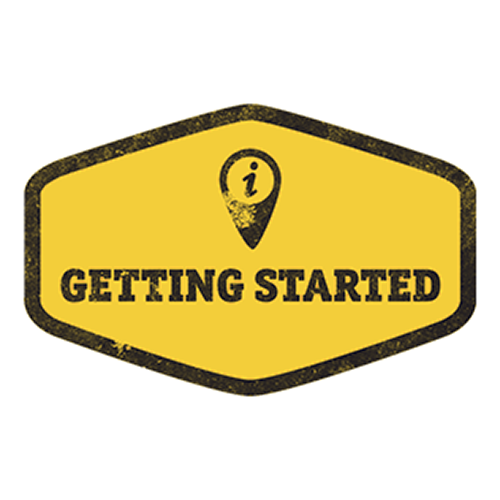
Getting Started
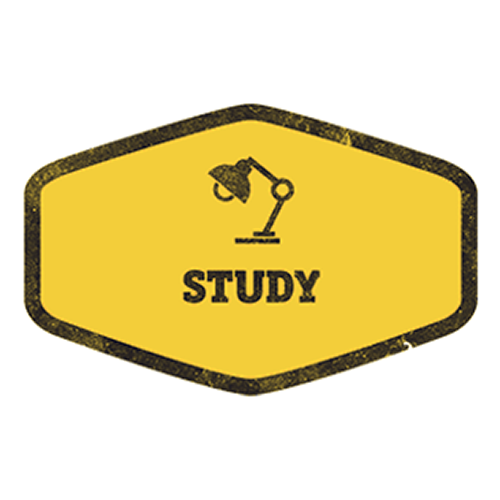
Study
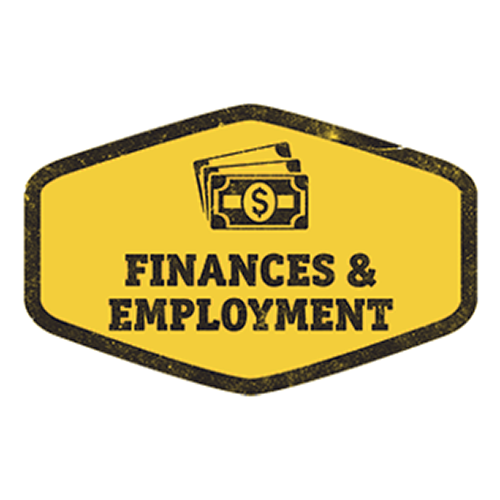
Finances & Employment

Health & Support

Accomodation


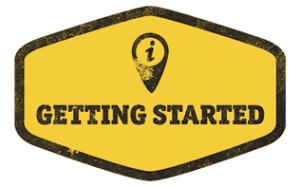 The University Survival Guide is Proudly Sponsored by Griffith University
The University Survival Guide is Proudly Sponsored by Griffith University

